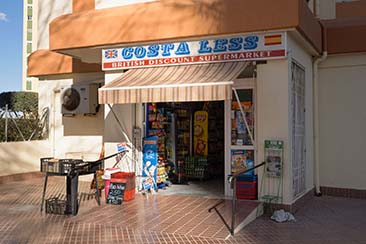Are you ready for a thrilling journey that will provide fresh opportunities and life experiences? Moving to a new city can be incredibly exciting, but also quite daunting.
This blog post is intended to help make the transition as smooth as possible. Providing tips on how to choose the right location, doing thorough research into your prospective home town, organizing all details concerning logistics prioritizing this task over everything else and finally settling in while dealing with any unexpected hiccups along the way!

Choosing the Right City for You
Relocating to a different city is an exciting opportunity, offering the chance for amazing new experiences! If you are freshly out of college looking to start anew or someone interested in transitioning careers, there’s certainly somewhere out there that will be perfect.
It’s important when making your decision to take into account various aspects such as job opportunities, living costs and weather conditions which should correspond with personal tastes. For instance, San Francisco may seem like paradise, but costly housing could make it not quite right if money is tight.
To get a better feel for any potential cities try visiting them in person or look up reviews online (Nomad List being one source) so you can assess whether they fit what you’re searching for during this journey ahead of time! Regardless of where exactly life takes us next, all towns possess their own individual charm – find yours now and relocating seamlessly will follow suit.
Preparing for the Move: Research and Planning
Once the destination of your move is settled, it’s time to create a plan! You’ll need to do some research into all aspects of the city: its job prospects, housing and local environments.
Read posts from people living in current city or familiar with the place on various online platforms such as blogs and social media so that you can gain an understanding of what areas are desirable for residence, any employment opportunities available etc. This will make sure you arrive at your new home prepared.
It’s necessary to investigate. These essential elements when relocating, this includes delving deep into information related not just to town facilities, but also regarding individual neighbourhoods and job markets in said location before committing fully.
Neighborhood Selection
When deciding where to move in a new city, selecting the right neighborhood is essential for making yourself comfortable. Make sure you take into consideration factors such as walkability, proximity of nightlife and stores, noise level and cost when picking out your next home.
Keeping your expectations realistic will aid in finding an area that fits both your lifestyle needs and desires perfectly.
To really get a taste of what living there would be like, consider booking an Airbnb for either several days or even just one weekend before settling down completely – this way you’ll have firsthand knowledge regarding how it’s going to feel once relocated so you can decide whether it truly suits all requirements necessary for having a happy life or not!
Housing Options
When embarking on the adventure of relocating to a new city, it’s crucial to thoroughly explore the myriad housing options available. From sublets and private rooms in apartments to the versatility of Airbnb and the community-oriented vibe of co-living spaces, there’s a housing solution to fit both your budgetary constraints and temporary needs, whether it’s acquainting yourself with the locale or forging new social connections.
Kickstart your quest for the ideal abode by leveraging online platforms like Zillow or Apartments.com. These tools empower you to survey various neighborhoods and accommodation types, all without the weight of long-term commitments. Embrace the freedom to adapt and explore as you settle into this thrilling new chapter of your life!
Job Search Strategies
Relocating to a new city can be successful if you take steps towards finding employment. There are certain strategies that increase your chances of landing the job.
Firstly, utilize online job boards like Glassdoor, Indeed and LinkedIn for listings related to specific industries and locations with salary information included. Secondly, build up professional relationships through events such as conferences or on virtual platforms in order to get referrals from potential employers directly.
Thirdly, use an advanced search function via social networks including LinkedIn when researching companies located within the target area. Attending career expos is also beneficial here too. Lastly, by using these methods you could effectively navigate your way around this city’s labour market increasing success rates for obtaining jobs there.

Organizing Your Move: Budgeting and Logistics
To successfully complete your move, it is essential that you properly plan and budget for the relocation. This includes taking care of utilities as well as arranging to transport your possessions. Let’s take a closer look at each of these components in order to make sure everything goes smoothly!
First off, create an itemized list detailing how much money will be spent on relocating so that there are no unexpected costs once the process has started. Then coordinate with utility providers ahead of time regarding gas, electric service or telephone hookups – this step can’t be overlooked if you’re using a utility.
Creating a Moving Budget
Estimates for typical long distance moving costs, especially for interstate moves, can range from $3,000 to approximately $10,000, depending on various factors such as distance, volume of belongings, and additional services required. When it comes to local shifts, individuals typically incur expenses ranging from twenty-five to one hundred and twenty-five dollars per person. Meanwhile, the hourly rates for long-distance moves typically fall within the range of $100 to $200 per hour.
To ensure financial preparedness for your move, it’s advisable to allocate your moving budget carefully. Setting aside at least 20 percent for unforeseen expenses is prudent. These surprises could include unexpected building costs, fees for professional house cleaning services, fuel expenditures, charges for vehicle transportation, the cost of packaging materials, and the potential need to purchase additional storage units.
By budgeting for these potential expenses, you can mitigate the risk of financial strain during your relocation process. If you’re in the Boston area, don’t forget to consider Boston piano movers if you have any special musical equipment to relocate.
Coordinating Utilities and Services
When moving to a whole new town or city, it is important that one arranges utilities and service providers prior. Here are the measures you can take.
Establish electricity, water, gas as well as internet accounts with respective organizations in your destination town.
Advise magazine subscription companies of any address alterations so that they keep delivering your favourite publications on time..
Go through the USPS Change of Address® website or visit local post office personally for notifying them regarding redirecting mail to where you will be living now .
Following those steps properly will make sure an easy shift into this fresh new place, safely without disruption in services offered making residing comfortable from start at this new home.
Transporting Your Belongings
When you are making a move, relocating your belongings is an important element to consider. The cost of transporting these items across the nation may vary depending on their size and distance they must travel as well as other factors like cleaning services. It falls between $1,123 – $14,107.
To discover which option will work best for you financially as well as suitably, analyse all available relocation solutions and request precise estimates from specialists.
Popular like International Van Lines, Allied Van Lines or Moving Companies Montreal could guarantee that your possessions arrive safely at the new home without any delays!

Settling into Your New City: Integration and Networking
As you reach your new city, it’s time to challenge yourself, move out of your comfort zone and learn the ways of this current one. This will make life easier for sure by getting involved in local groups, growing a social circle and mastering job opportunities. Embarking on this journey is necessary so as to feel comfortable in unfamiliar areas and familiar surroundings.
If feeling lost or alone while settling down, try exploring coffee shops around town, after all, they are great places which connect people who live there together! Connections can be made through conversations that may even lead to finding a good job possibility fitting perfectly with your needs!
Joining Local Groups and Activities
Exploring local activities, sports and different groups in your new city is a great way to meet new people and create relationships. Platforms like Eventbrite, City Socializer or Bookmyshow are useful tools for finding fun events nearby.
If you have an interest in playing sport competitively, then look into joining local leagues – connect with league organisers to get involved plus keep your family and up-to-date on community updates through social media channels or discussion forums. It’s also a great opportunity to embrace the culture of the area while making some friends!
Establishing a Social Circle
Establishing a social network in your new city is fundamental for an effortless transition. Connect with people through work, local gatherings, or online support systems like Facebook, Meetup, Twitter, LinkedIn and Pinterest to join expats and locals living there.
Don’t be hesitant to chat up the neighbors near you or take part in activities at your apartment building—as time goes by these connections will expand into companions who can make navigating the world in this unknown place so much more fun!
Navigating the Job Market
Moving to a new city can make advancing your career seem daunting, but networking and looking for jobs are two essential steps towards achieving that progress.
You don’t want to be the only person trying to find employment opportunities in this environment. Using sites such as Careerbuilder.com, Glassdoor.com, Indeed.com, Monster. com, ZipRecruiter and LinkedIn can help you locate the perfect job for yourself within your area of expertise.
To maximize on these potentials. One should join industry associations or organizations which offer enthralling events and chances related to their field – Researching relevant organisations is key followed by attending their conventions/conferences thereafter connecting with professionals will open doors leading up to expanding networks & better odds of being employed duely!

Handling the Unexpected: Overcoming Challenges and Adapting
Moving to a new city in another country is always an important decision and can come with unexpected obstacles. To make sure the transition goes smoothly, it’s essential to be ready for cultural differences, transportation difficulties, and additional expenses that may appear along the way.
Preparation is key when making such a big move, by being aware of potential problems beforehand you will have all chances for success settling down in your chosen destination overseas.
Managing Culture Shock
When relocating to a new cities, or even a new country, culture shock is often experienced. To help alleviate this experience, it’s important to accept the differences you encounter and retain an optimistic outlook when navigating through them.
It can also be advantageous to educate yourself about local customs as well as bridge any cultural gaps that may arise so you eventually feel more comfortable in your new environment. Understanding the various stages and ways to manage these will ultimately make adapting easier.
Familiarizing oneself with their surroundings before arrival, staying open-minded while embracing experiences presented by newcomers, seeking out advice from locals within the expat community or taking part in activities allowing deeper immersion into one’s fresh locale are all methods which have proven fruitful for many people who move cities regularly.
By engaging positively with steps such as these, it should not take long until you feel at home amongst your new friends and new neighbors, you’ll soon be heading to the local coffee shop and forgetting you ever moved out of your comfort zone!
Navigating Public Transportation
Navigating a new city is made simpler when one has an understanding of the public transportation system available.
Popular forms found in many US cities include buses, trains, subways and light rail systems which can save both time and money for residents making it easier to feel at home. To make use of these options, there are tools such as Google Maps or mobile apps like Moovit and CityMapper that give directions on how best utilize them, allowing people to get around more efficiently with confidence.
Preparing for Surprise Expenses
Having an emergency fund for any extra costs that could arise during the moving process is essential, such as repairs or additional services. Allocating at least 20% of your relocation budget towards unexpected expenses will give you relief and a chance to experience new adventures worry-free!
Setting aside this reserve can provide financial security against potential obstacles so that you can enjoy the journey without worrying about finances. Down the line.

Moving to a New City AND Country
Moving to a city in a new country is a significant decision that requires careful consideration and preparation. This transition can present unique challenges, including adapting to a different culture, navigating transportation systems, and managing unforeseen expenses. By anticipating potential obstacles and planning accordingly, you can increase your chances of a successful relocation and seamless integration into your chosen destination abroad.
Here’s some of the top things to consider:
Visa and Immigration Policies
Investigate the visa requirements and immigration policies of the new country. Understand the process and eligibility criteria for obtaining a visa or residency permit. Consider factors such as the ease of obtaining long-term residency, work permits, and the potential for citizenship in the future.
Each country has different rules, and it’s important to consider whether the whole family can join. In Britain, for example, the skilled worker dependent visa allows family members of those already in the UK on an eligible work visa to come and join them. Ensure you always comply with all legal requirements and have a clear understanding of your rights and responsibilities as an expatriate.
Cultural Adaptation
Prepare for cultural differences and adaptability challenges in the new country. Research the local customs, traditions, social norms, and etiquette to avoid cultural misunderstandings. Language proficiency is crucial for effective communication and integration into the community.
Consider enrolling in language courses or language exchange programs to improve your language skills and facilitate smoother interactions with locals. Additionally, familiarize yourself with the country’s history, politics, and social dynamics to gain a deeper understanding of the culture.
Healthcare and Insurance
Evaluate the healthcare system and insurance options in the new country. Research the quality, accessibility, and cost of healthcare services, including medical facilities, doctors, and emergency care. Determine whether your current health insurance coverage is valid overseas or if you need to purchase international health insurance.
Understand the extent of coverage provided, including routine medical care, emergency treatment, and specialized services. Consider factors such as pre-existing conditions, prescription medications, and vaccination requirements to ensure you have adequate healthcare coverage in your new country of residence.

Frequently Asked Questions
Is it a good idea to move to a new city?
Moving to a new city can lead to new friendships, career change opportunities and open up potential love connections. While it is not without its challenges, the experience and personal growth that comes from a new city may have life changing effects.
How long does it take to adjust to moving to a new city?
Adjusting to moving to a new city can vary greatly from person to person and depend on numerous factors. For some, it may take just a few weeks to start feeling comfortable and settled, while for others, it could be a huge deal that would take several months or even a year.
Factors that influence the adjustment period include the individual’s personality, support network in the new city, familiarity with the area, and the extent of cultural or lifestyle differences between the old and new locations. Building new relationships, learning the local customs, and exploring the city can all contribute to a smoother transition.
Ultimately, the timeline for adjustment is a highly personal experience and can be unique to each individual.
How do I move to a new city for the first time?
Adjusting to life in a new city is a multifaceted process, and there are several crucial steps to take to ensure a successful transition. First and foremost, it’s essential to establish an organized budget to manage your finances effectively in your new environment. This includes calculating living expenses, such as rent or mortgage, groceries, transportation, and any other costs unique to your new location.
Doing thorough research about the city and its neighborhoods can also prove invaluable. Understanding the local amenities, schools, healthcare facilities, community events and even Facebook groups will help you make informed decisions about where to settle.
Furthermore, before you move, it’s advisable to reach out to essential utilities and services to set up accounts and ensure a smooth transition. This includes contacting providers for electricity, water, internet, and other necessary utilities to have everything in place when you arrive. Additionally, securing employment in your new city, if possible, before relocating can provide a sense of stability and financial security during the adjustment period.
By taking these proactive steps, you can significantly increase the likelihood of a successful and stress-free move to a new city, ensuring that your transition aligns with your plans and goals.
Should I move to a new city in my 30s?
Migrating to an unfamiliar city in your thirties can be a life-changing experience, offering different opportunities for personal growth and broadening one’s cultural knowledge. Taking the plunge into uncharted territory could open you up to valuable experiences that will lead to lasting fulfillment.
Moving away from where you are comfortable gives you the chance explore new possibilities and create a meaningful existence at this stage of your life.
What factors should I consider when choosing the right city for me?
When picking the most suitable city for you, consider all aspects including job market, climate, cost of living and your own requirements to guarantee that it is a perfect decision. Job opportunities must be taken into account so you can make an educated selection about which metropolis suits best.








